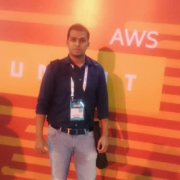

Oracle Data Guard and AWS Elastic Disaster Recovery offer robust solutions for data protection and disaster recovery. AWS Elastic Disaster Recovery is often seen as the superior product due to its feature set and perceived value.
Features: Oracle Data Guard is praised for its automation, integration capabilities, and reliability in enterprise environments. AWS Elastic Disaster Recovery is valued for its scalability, ease of use across various platforms, and comprehensive feature set tailored to modern disaster recovery needs.
Room for Improvement: Users suggest that Oracle Data Guard could enhance its user experience by simplifying its complex setup, improving documentation, and offering better integration options. For AWS Elastic Disaster Recovery, users recommend better reporting tools, more granular control over recovery settings, and enhanced customization features.
Ease of Deployment and Customer Service: Oracle Data Guard has a challenging deployment process that requires significant expertise, yet offers solid customer support post-deployment. AWS Elastic Disaster Recovery is known for its straightforward deployment process, complemented by responsive customer service, making it more user-friendly and efficient.
Pricing and ROI: Oracle Data Guard is often viewed as costly but justified by its reliability and performance. AWS Elastic Disaster Recovery, although also considered somewhat expensive, is perceived to provide better ROI due to its scalable pricing model and broader feature set. Users investing in AWS generally feel they receive better value for their money.
| Product | Market Share (%) |
|---|---|
| Oracle Data Guard | 0.9% |
| AWS Elastic Disaster Recovery | 0.6% |
| Other | 98.5% |


| Company Size | Count |
|---|---|
| Small Business | 5 |
| Midsize Enterprise | 4 |
| Large Enterprise | 7 |
| Company Size | Count |
|---|---|
| Small Business | 7 |
| Midsize Enterprise | 3 |
| Large Enterprise | 22 |
CloudEndure Disaster Recovery enables real-time replication and rapid recovery to enhance organizational resilience. Key features include block-level data replication, ease of use, cost-effectiveness, and automated recovery orchestration. Users benefit from increased efficiency, improved workflows, and enhanced data management, significantly improving organizational performance and business continuity.
Oracle Data Guard ensures high availability, data protection, and disaster recovery for enterprise data. Data Guard provides a comprehensive set of services that create, maintain, manage, and monitor one or more standby databases to enable production Oracle databases to survive disasters and data corruptions. Data Guard can be used with traditional backup, restoration, and cluster techniques to provide a high level of data protection and data availability.
We monitor all Backup and Recovery reviews to prevent fraudulent reviews and keep review quality high. We do not post reviews by company employees or direct competitors. We validate each review for authenticity via cross-reference with LinkedIn, and personal follow-up with the reviewer when necessary.